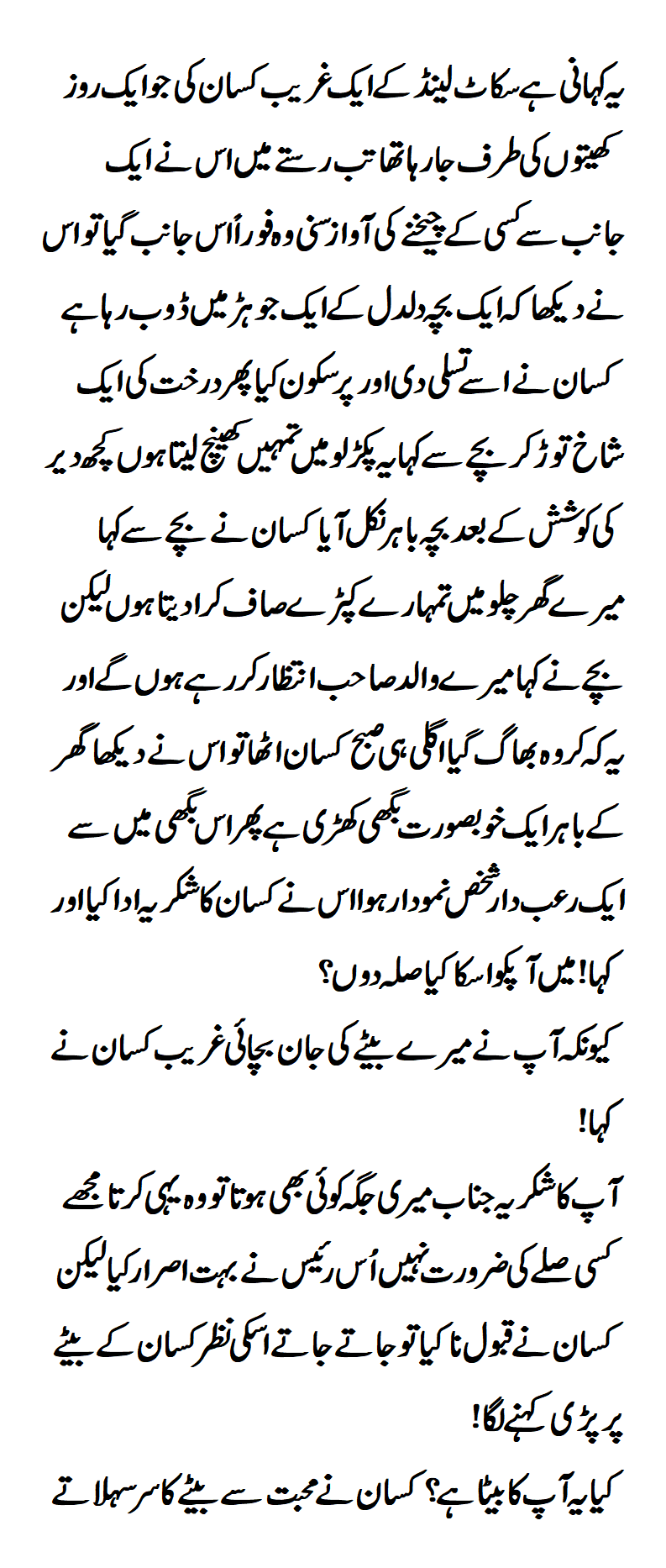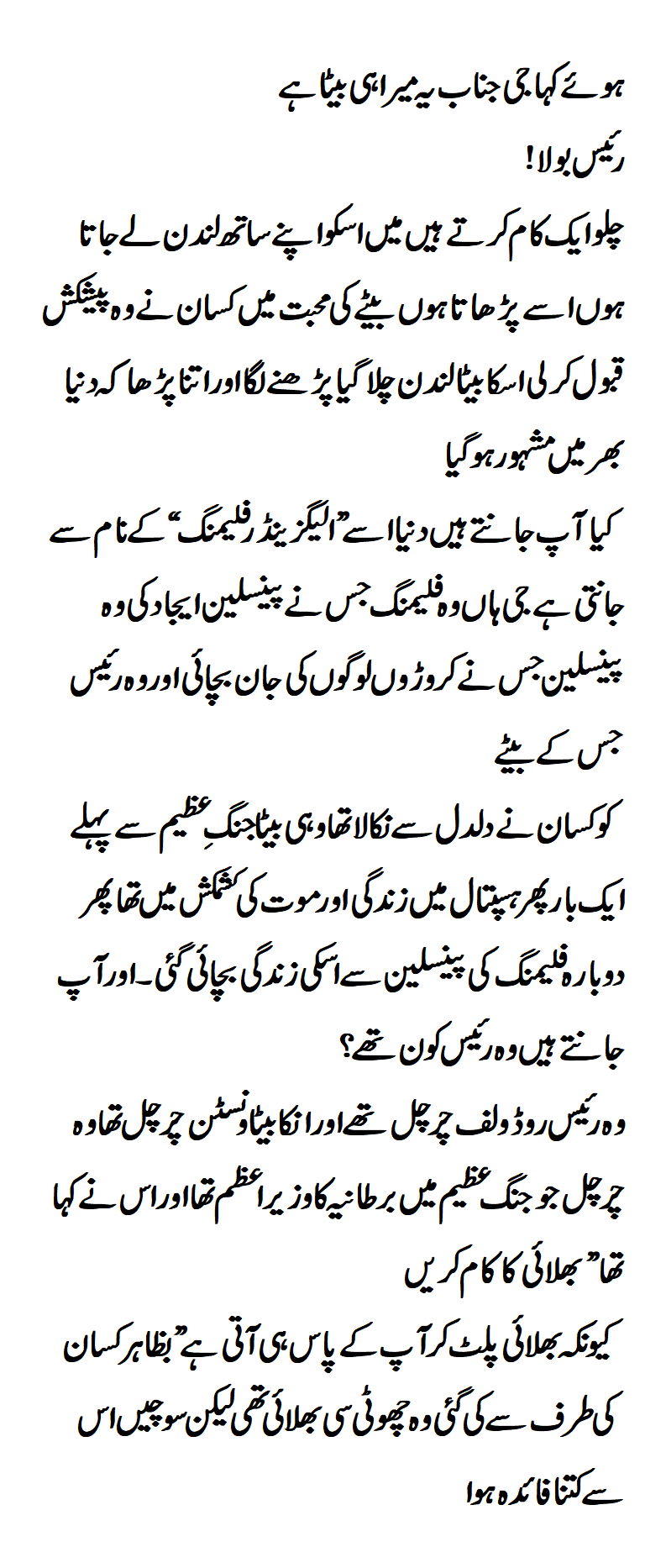As we go through our everday activities, we have opportunities to brighten the day of others, many times with things we do not even realize. Sometimes the smallest act of kindness, one we may not recognize as special, can have profound, unexpected, and even life-changing results for the one who receives the act. The following story, sent to me several years ago, illustrates this (whether fictional or not, it serves a profound lesson).
A poor Scottish farmer by the name of Fleming was trying to make a living for his family when he heard a cry for help coming from a nearby bog. He dropped his tools and ran to the bog where he found a terrified boy, buried to his waist in the muck, screaming and struggling to free himself. Farmer Fleming saved the lad from what could have been a slow and terrifying death.
The next day, a fancy carriage pulled up to the Scotsman’s humble home, and an elegantly dressed nobleman stepped out and introduced himself as the father of the boy Farmer Fleming had saved. “I want to repay you,” said the nobleman. “You saved my son’s life.”
“No, I cannot accept payment for what I did. It was just common kindness and something anyone would have done,” the Scottish farmer replied.
At that moment, the farmer’s own son came to the door of the family house. “Is that your son?” the nobleman asked.
“Yes,” the farmer replied proudly.
“I’ll make you a deal. Let me provide him with a good education. If the lad is anything like his father, he’ll grow to a man of whom you can be proud.”
In time, Farmer Fleming’s son graduated from St Mary’s Hospital Medical School in London and went on to become known throughout the world as Sir Alexander Fleming, the discoverer of penicillin.
Years afterward, the nobleman’s son was stricken with pneumonia. What saved him? Penicillin.
The name of the nobleman? Lord Randolph Churchill. His son’s name? Sir Winston Churchill.
One might suggest that saving a person’s life is more than just a “small act of kindness,” but Mr. Fleming was ready, willing, and able to meet the need of this young boy in trouble. He did not go to the bog and berate the young man for falling in it. He could have told him that since he got himself into this mess, he could get himself out! How often do we see people in need and make the decision that the person can get themselves out of the mess they have created or that someone else can help them?

